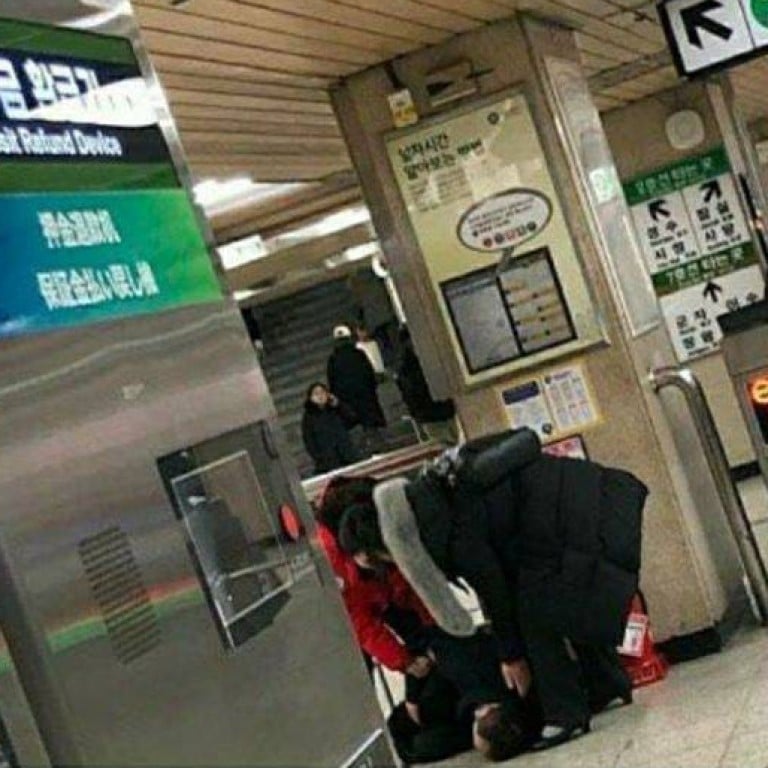
Wuhan coronavirus: what a photo of a drunk Chinese man in Seoul says about fears of the disease
- South Korea has a handful of confirmed coronavirus infections, yet false rumours and fears of an epidemic are spreading like wildfire on the internet
- A Korean teacher who was visiting Shanghai when the city reported its first case of the virus said her colleagues joked that she had been infected
The picture of the man and two women trying to help him was shared in a post on an online forum titled “A Chinese man collapsed in Konkuk University Station” which went viral. “I was going back home with some friends when I saw a Chinese man collapsed on the ground. I ran home holding my breath … People living near Konkuk University, be careful,” the author of the post wrote.
Except the man was not, as so many claimed, infected with the virus. He was just drunk. This was confirmed by representatives of the subway.
Another report claimed a person infected with the virus had collapsed in a shopping centre in the city of Goyang. The Korea Centres for Disease Control and Prevention (KCDC) debunked the claim after an extensive search of GPS and credit card records found the person in question had never visited the mall.
While such stories have been shown to be false, they play upon a very real fear in South Korean minds that the country could be about to witness a sharp rise in the number of infections within its borders.
Since the virus originated in the Chinese city of Wuhan, South Korea has reported six confirmed cases as of January 30.
In an earlier announcement, the KCDC said it believed the four infected people – all of whom had visited Wuhan – had been in contact with 366 other people since their return. That announcement sparked widespread speculation online over the whereabouts of the 366 and how far they may potentially have spread the disease.
Such fears are not entirely unfounded. South Korea has raised the country’s infectious disease alert level one notch from “yellow” to “orange”, the third highest. However, experts say many of the fears being expressed online are far out of proportion to the real threat.
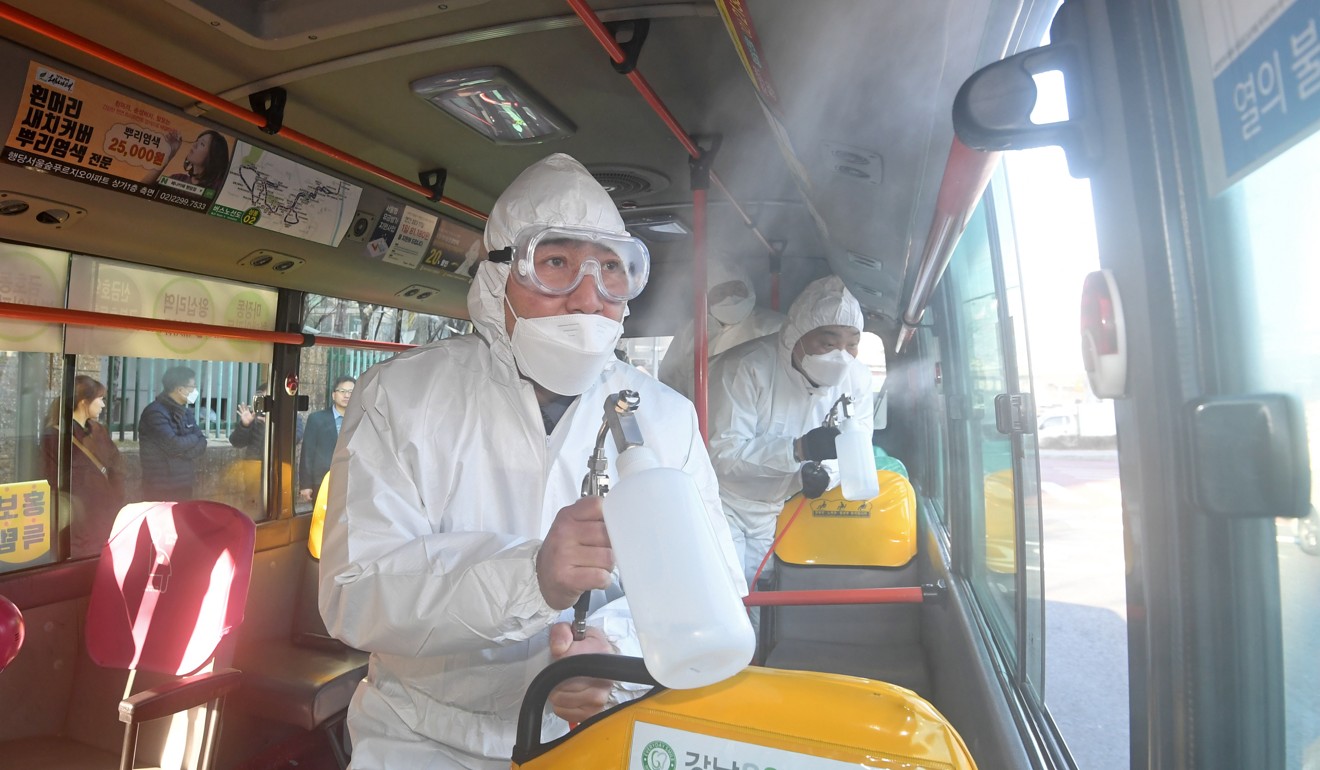
Oh Myoung-don, a professor at the Seoul National University College of Medicine, said the same survival instinct that helped humans to live for a long time – the hard-wired neural network imprinted in a person’s brain – was behind the fear people felt when seeing stories about epidemics in the news.
“Even if the chances of being contaminated turn out to be very low, the instinctive part of the brain functions faster than the logical part of it,” said the professor at the division of infectious diseases.
“In the end, the public is prone to develop phobia of an epidemic.”
He said the coronavirus was going through an “uncertain situation”, in which the inability of experts and scientists to agree on the likelihood of being contaminated was helping to spread fear.
The South Korean health ministry said it could not answer questions about the chances of any single individual being infected by the virus inside the country.
Meanwhile, international researchers disagree over how fast the virus may spread from person-to-person, and over its severity.
The World Health Organisation said on January 28 that most cases till then had been mild with around 20 per cent of those infected experiencing severe illness. So far only a few countries have reported instances of the virus spreading from person to person.
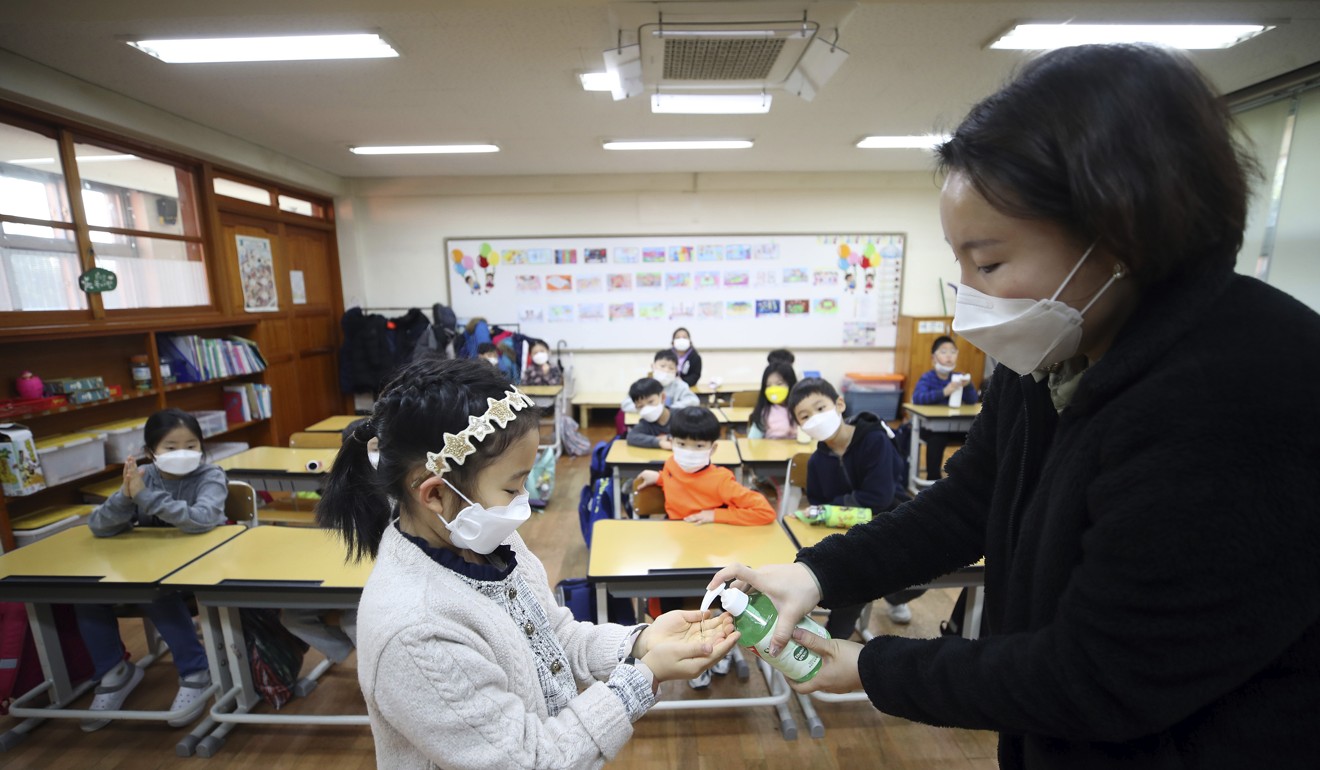
NO LONGER A JOKE
Regardless of the odds of infection, fear and uncertainty is likely to linger as the number of worldwide cases rise.
‘Deeply concerning’ coronavirus cases prompt WHO to consider emergency
“When I came back from my trip, people at work were joking about me being infected with the virus,” the teacher said. “However, when news continued to pour out about the seriousness of the situation, people stopped joking.”
Her day care centre told her to take a break for two weeks, the amount of time some experts have identified as the incubation period for the virus before symptoms appear. These are guidelines from the health ministry.
Day care centres in Pyeongtaek, where the fourth infection was confirmed, have announced a break period of four days until the end of January.
Meanwhile, one day care centre in a Seoul district with a high concentration of ethnic Koreans from China reported an 80 per cent drop in attendance. One mother wrote on an online forum: “I think it’s the appropriate thing to do for Chinese families to stop sending their kids to our centres, as the teachers are also in danger.”
But Oh, the professor, cautions that exaggerating the risk of infection could ultimately prove more harmful than the virus itself.
“The public’s fear of such a virus can lead to astronomical damages to our society and the economy,” he said.
What you need to know about the coronavirus in China
“The virus is not the only thing we have to face. We should actively stand up against excessive anxiety and vague fear,” he said in a televised speech. “The weapons to protect ourselves from the new type of coronavirus are not terror and abhorrence but trust and cooperation.”
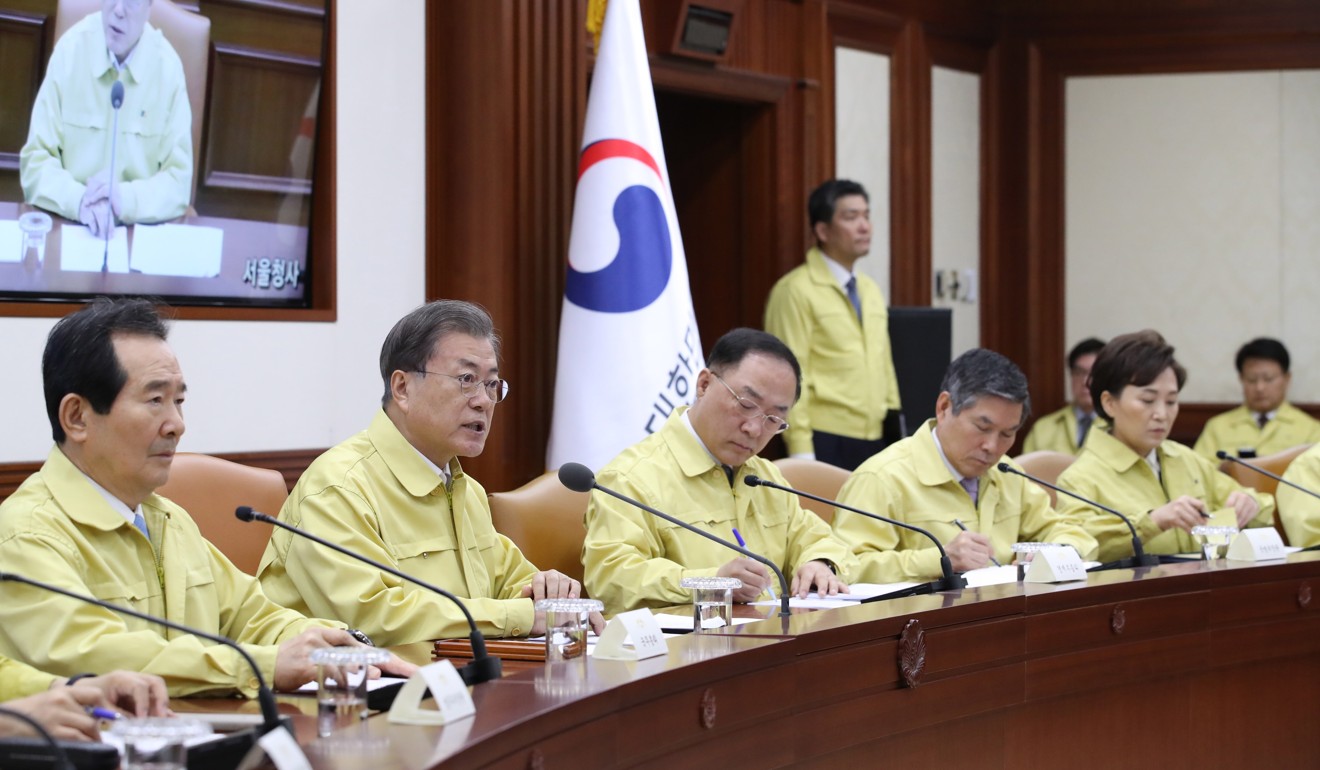
South Korea will evacuate the first of about 700 citizens from China’s Hubei province on Thursday and keep them in isolation in the cities of Asan and Jincheon, about 80km south of Seoul. But the plan has provoked an angry backlash, with protesters throwing eggs and shouting expletives when minister of interior and safety Chin Young arrived to talk to them on Thursday.
The minister said he sympathised with the concerns and sought their understanding, saying the facilities were chosen as the only ones large enough to accommodate the evacuees.
“South Korean citizens in Wuhan are suffering... So we need to bring them in as soon as possible, right?” he said.
Domestic media also showed images of protesters grabbing the hair of a health ministry official who visited late on Wednesday, before pushing him and dousing him with water.
“I am a mother of a three-year-old and a four-year-old,” said resident Lee Ji-hyun. “I was so worried I sent them to stay with my in-laws.”
Meanwhile, an online petition urging the government to impose a blanket ban on Chinese travellers received about 600,000 signatures in a week.
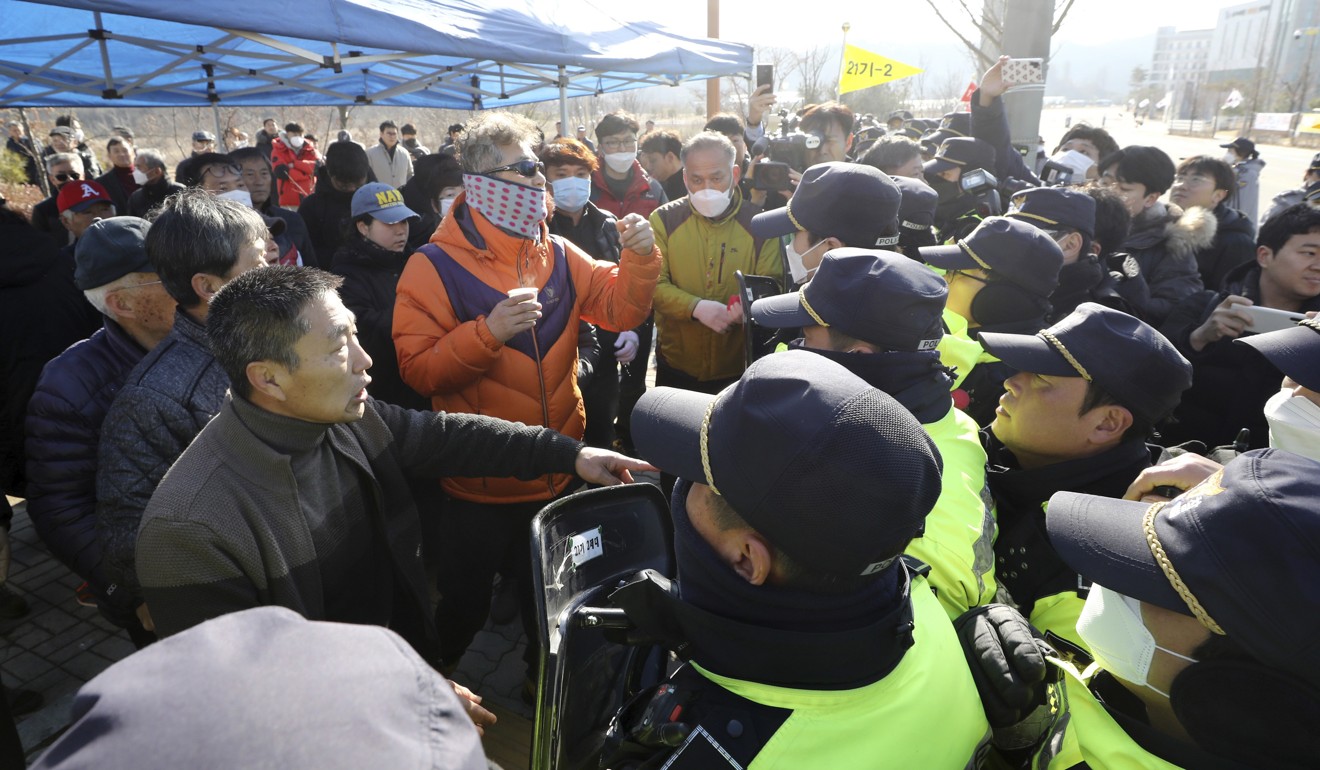
As for Choi, she is still facing social isolation following her trip to Singapore.
“I can sense that people are afraid of talking to me or coming near me,” she said. “I ask my family members for groceries or other errands, as I’m also worried that I will possibly affect the people closest to me.”
While colleagues and friends are hesitant to meet her, family members have largely refrained from commenting.
“The only thing they suggested was that I wear a mask at home, just in case,” she said.
Additional reporting by Reuters and Agence France- Presse
*An earlier version of this story erroneously reported the name of the city the day care centre visited. She had gone to Shanghai.

